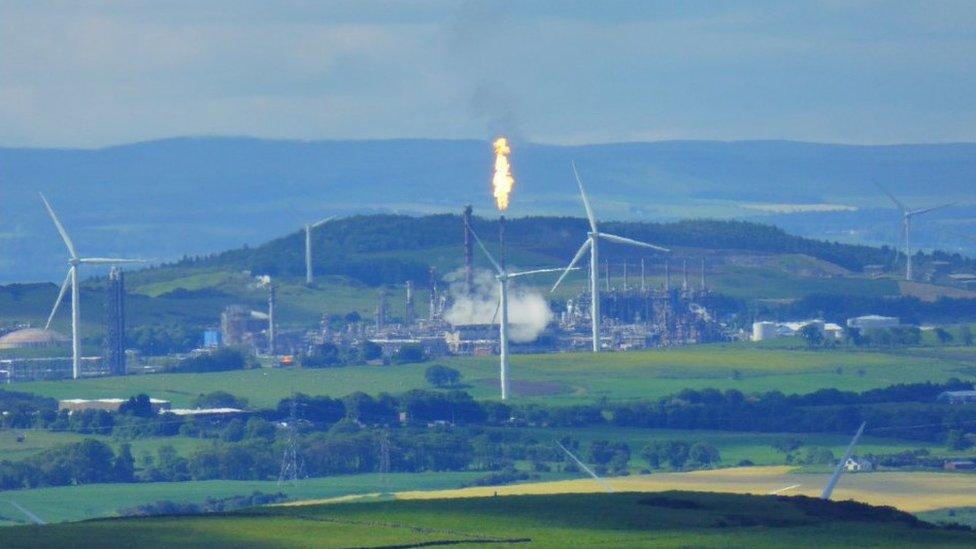Mossmorran's five-year plan for unplanned flaring 'is unacceptable'
- Published
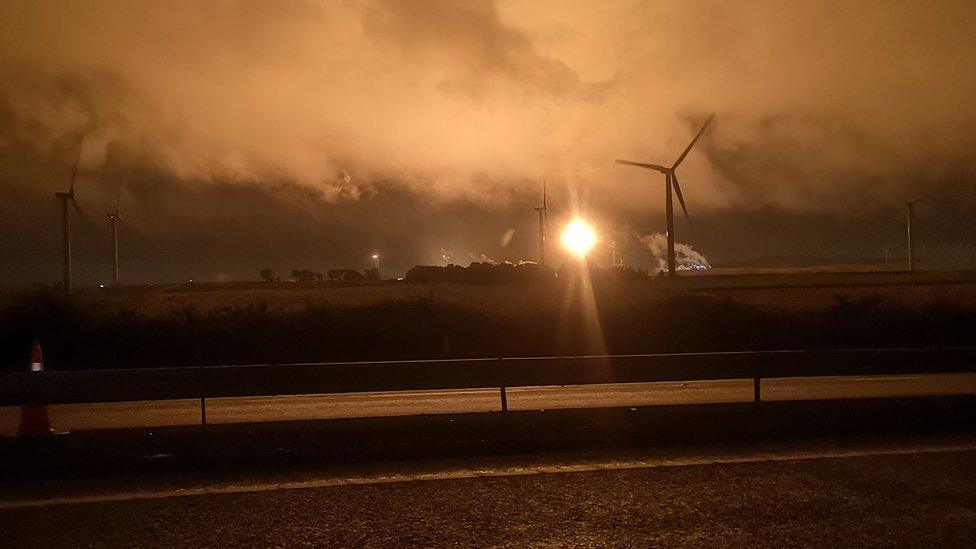
Residents complain about being unable to sleep because of the light and noise from the plant
The operators of the Mossmorran chemical plant have been told that taking five years to reduce unplanned flaring is an "unacceptable" timescale.
ExxonMobil has admitted "low reliability" in the ground flares it uses, meaning excess gas is instead being diverted to its towers.
That has led to increases in noise and light pollution, which the company said it hoped to eradicate by 2024.
But the environmental regulator has ordered improvements to be made sooner.
'Necessary action'
It follows the closure of the plant on Thursday for a month and an apology from ExxonMobil for the latest incidents of unplanned flaring which started on Monday.
Residents said "light pollution turned night into day" and "extensive noise" meant they were unable to sleep.
Footage on social media showed flaring illuminating the night sky
The ground flares used by ExxonMobil are owned, maintained and operated by Shell.
The Scottish Environment Protection Agency (Sepa) had ordered ExxonMobil and Shell, whish shares the site, to assess whether "best available techniques" were being used to prevent occurrences of the process.
It has now repeated its insistence that compliance with Scotland's environmental rules "is simply non-negotiable".
Chris Dailly, head of environmental performance at Sepa, said: "Communities across Fife have had to endure repeated 'preventable and unacceptable' flaring.
"We've heard clearly the frustration of local people and are today reaching another key milestone in our regulatory response which will drive necessary action to upgrade the site and limit its impact on local communities.
"We've published in full the proposals from both companies, our responses and our latest air quality monitoring summary report. We'll publish more information next week and are committed to keeping people informed."
Final warning
In recent years, local residents have complained of repeated unscheduled flaring incidents causing houses to vibrate.
The process of flaring involves burning off gas that cannot be processed because the site has experienced a technical "disruption".
Although the technique is legally permitted, it causes significant light and noise pollution which the operator is obliged to minimise.
An increase in the amount of unplanned flaring over the past two years has led the regulator to issue final warning notices.
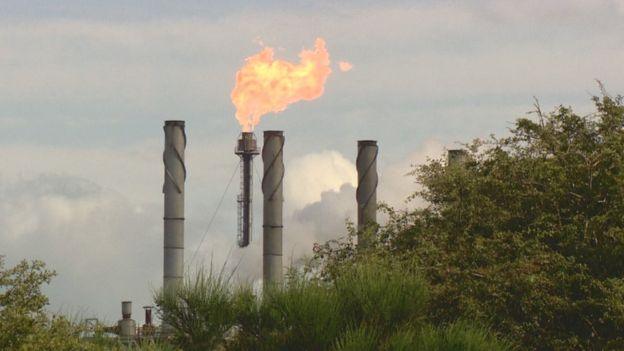
The operators of the Mossmorran plant have faced criticism from local residents
ExxonMobil's own assessment concluded that using its ground flares would be the "key technique to minimising visual, noise and smoke impacts associated with flaring."
But it added that use of the ground flares "is limited due to low reliability".
The company admitted that the ground flare technology was "outdated" and that noise control techniques had not been added to the system.
It said the plant was expected to remain out of action for the next four weeks.
The company apologised to residents and said it had experienced a mechanical failure on two of its three boilers.
Jacob McAlister, plant manager at the Fife Ethylene Plant said: "We are taking the right and responsible action to minimise frequency and public concerns relating to flaring, and the Best Available Techniques Programme provides a clear pathway to achieve this.
"We are committed to delivering this extensive, multi-million pound programme. In fact, we have already progressed a number of these commitments."
- Published16 August 2019
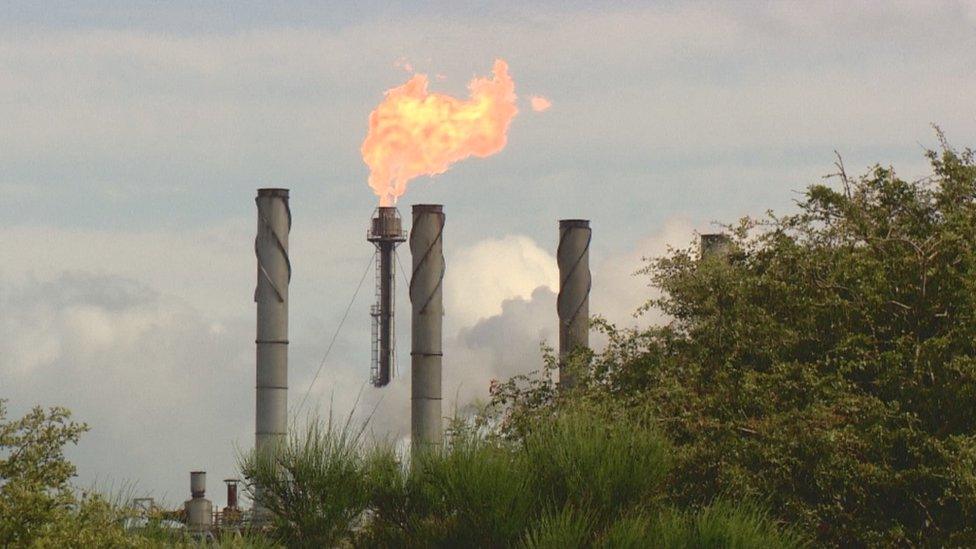
- Published13 August 2019
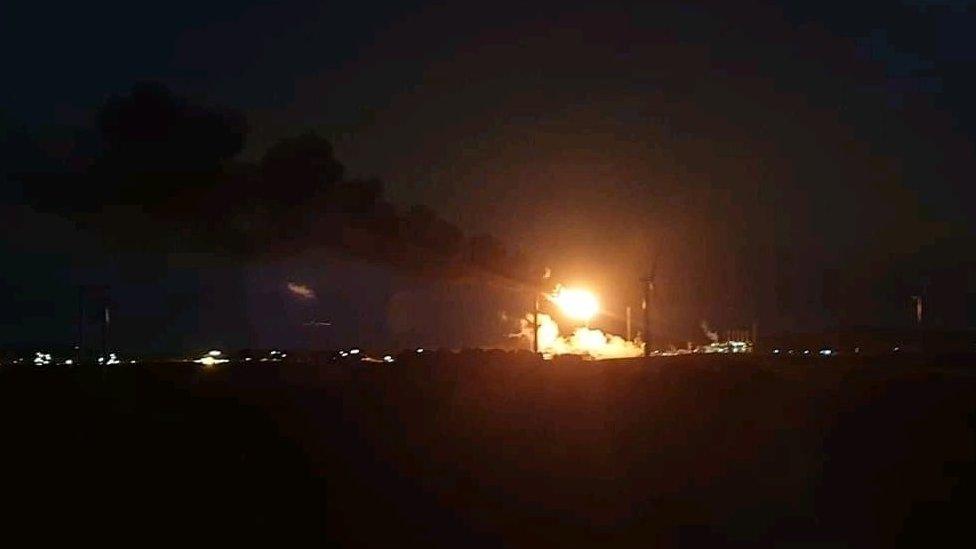
- Published14 June 2019
